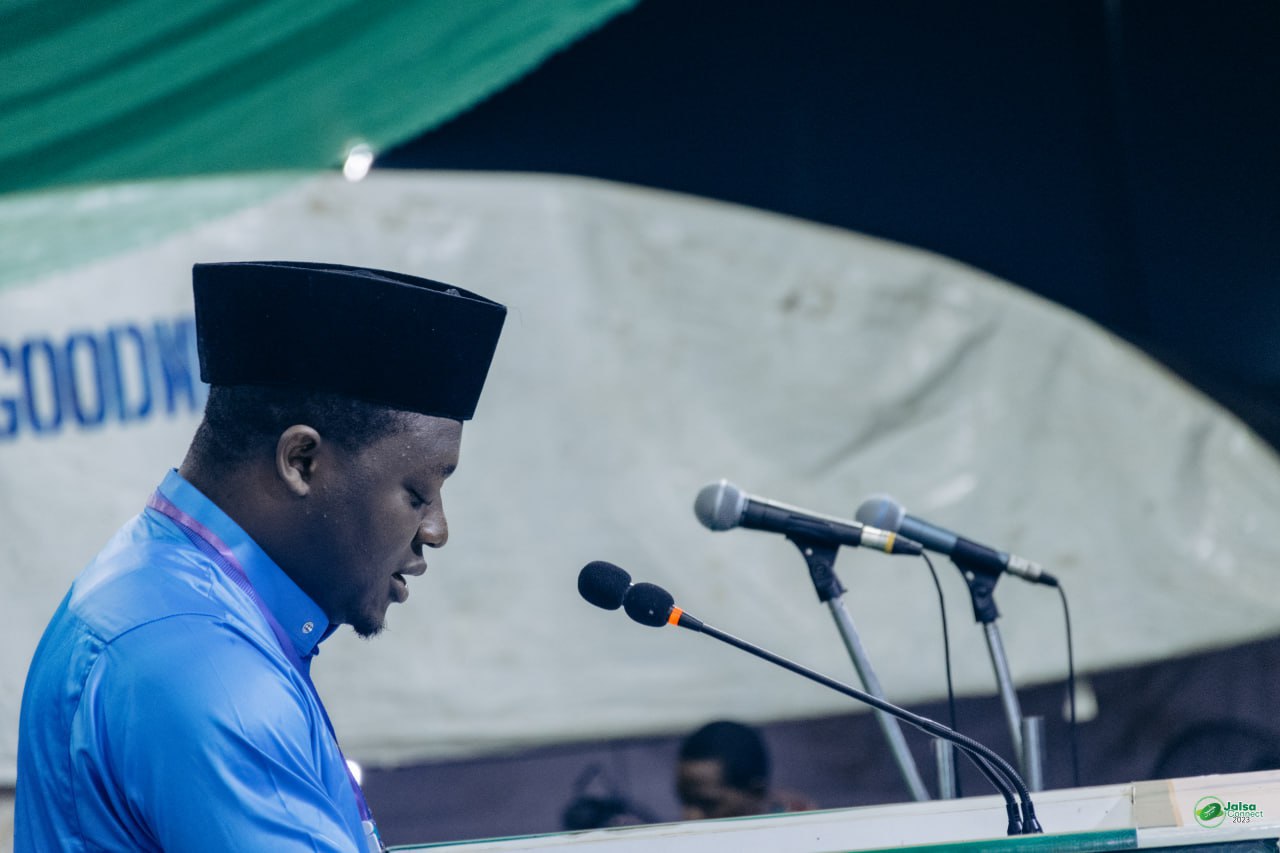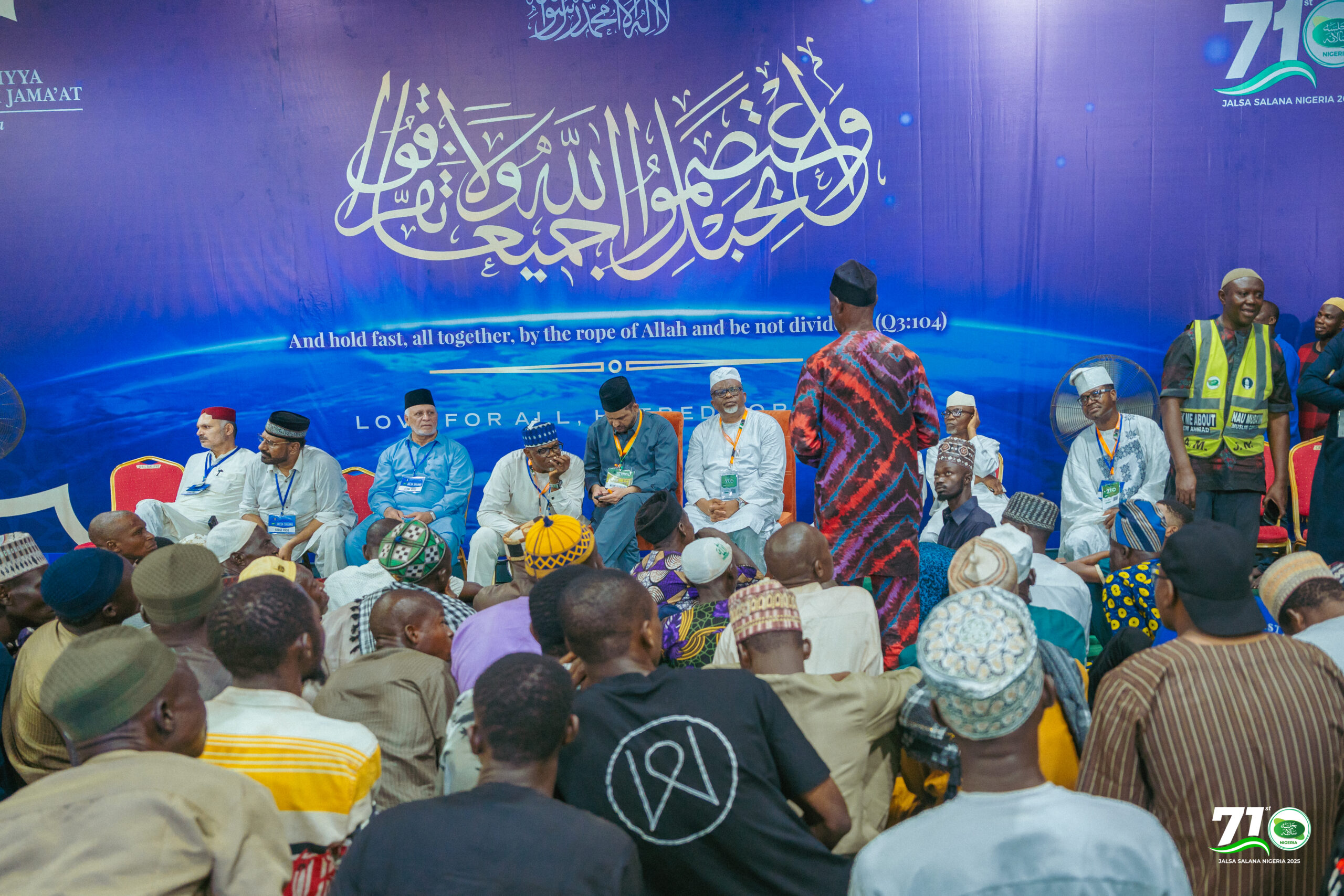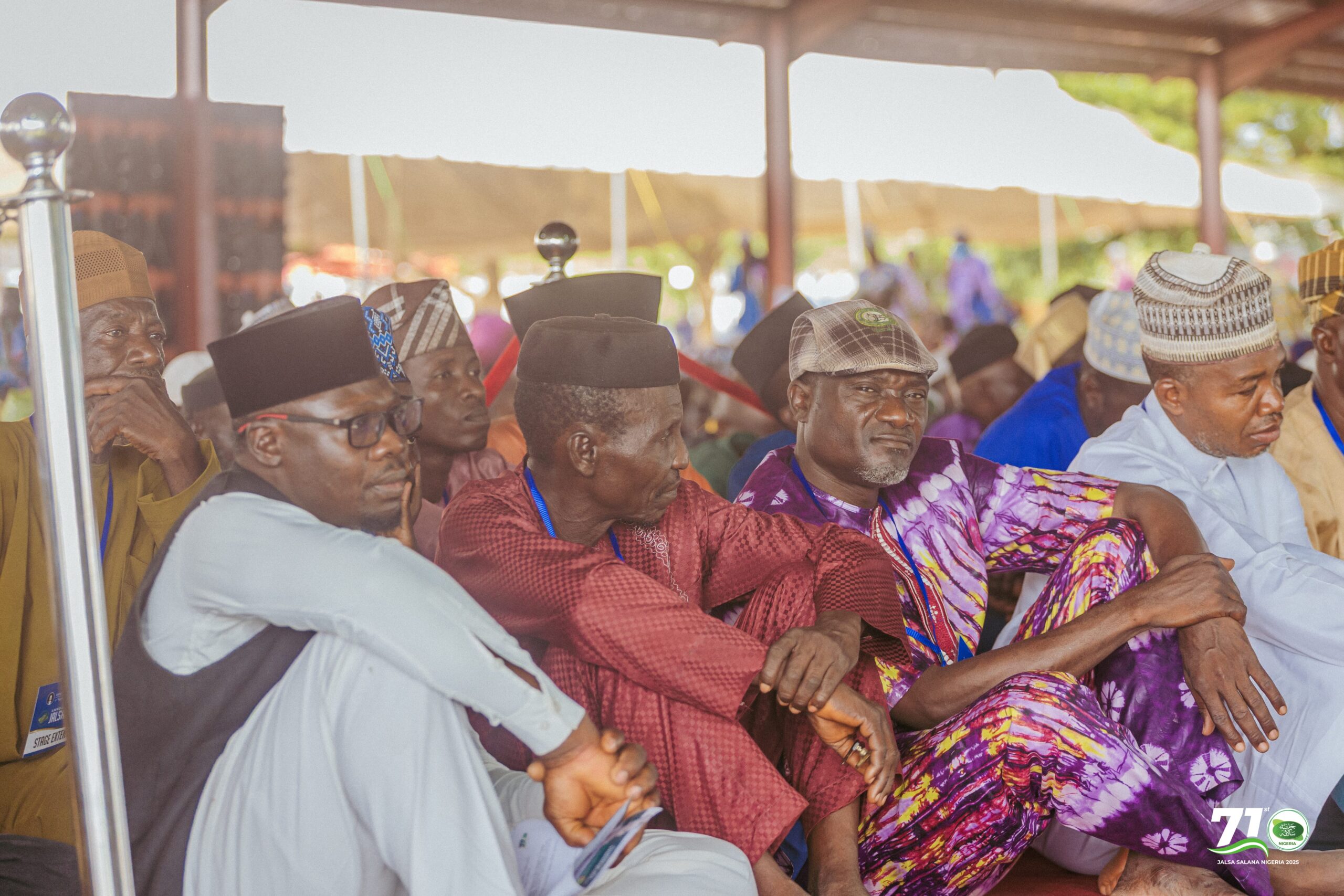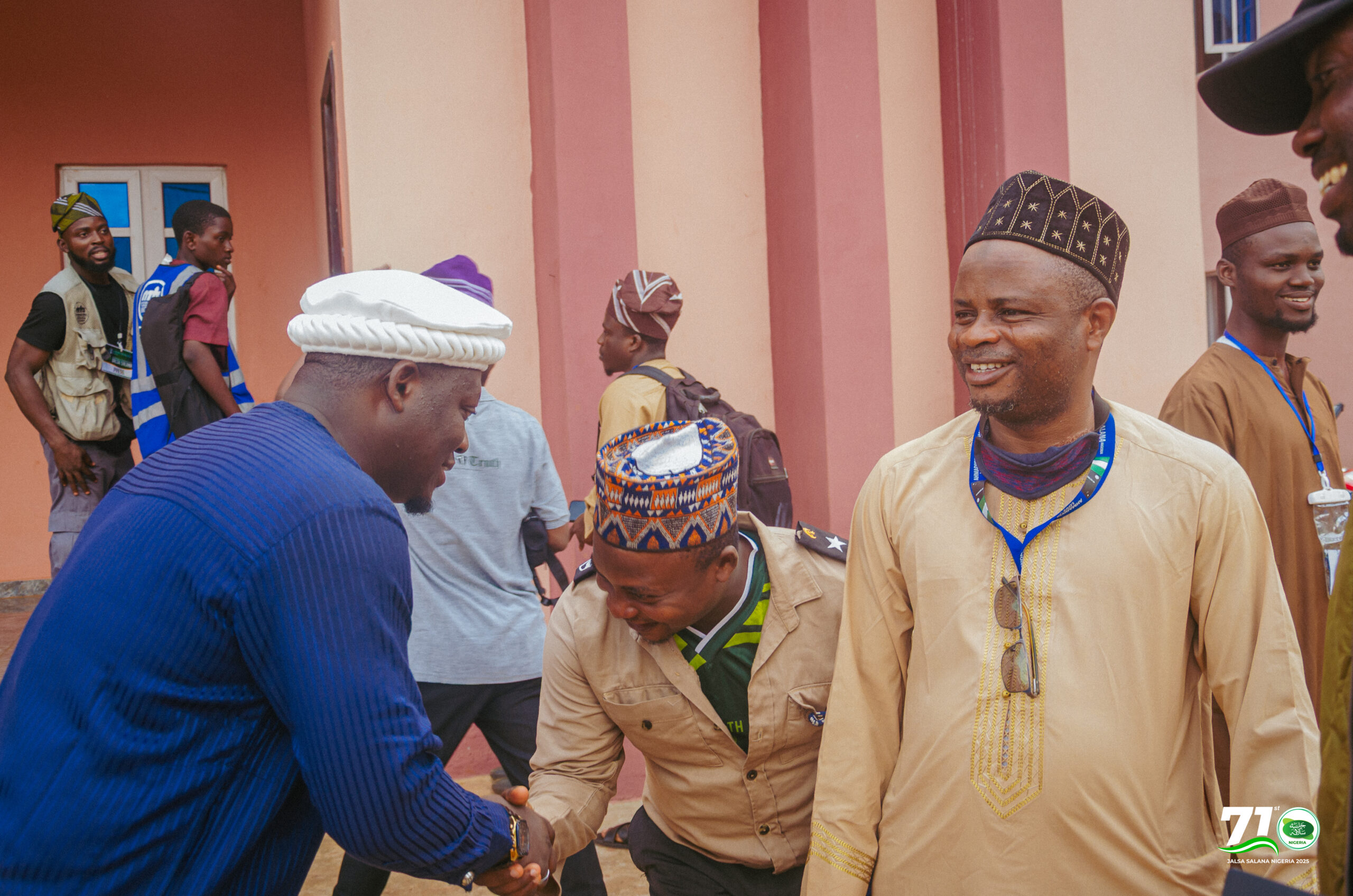By Abdur Roqib Akintunde Akinyemi
Audhu biLlahi mina-sh-shaytani-r-rajeem, Bismillahir Rahmani Raheem
Ashadu ʾan lā ʾilāha ʾillā -llāhu wahdaHu laa Sherika laHu, wa-ʾashadu ʾanna muḥammadan abduHu wa rasūluHu
I bear witness that there is none worthy of worship, except Allah and that Muhammad, (SAW) is His servant and messenger.
Protocols and beloved fathers, mothers, brothers, and sisters in Islam,
Assalaamu Alaykum wa rahmatullahi wa Barakatuhu.
It is with immense gratitude and humility that I stand before you today as a speaker at this prestigious gathering. I extend my heartfelt appreciation to the organizers for this noble opportunity to address such a distinguished and spiritual gathering.
In a world increasingly interconnected by the marvels of technology, we find ourselves immersed in a digital age where the boundaries of time and space seem to fade away. It is within this context that we turn our attention to a topic of great relevance – “Social Media: Its Benefits and Adverse Effects on Society.”
As we delve into the intricacies of this subject, we recognize that the digital landscape, like any tool, can be a double-edged sword. It offers unprecedented opportunities for global connectivity, knowledge sharing, and humanitarian efforts, yet it also presents challenges that demand our thoughtful consideration.
Our exploration today is framed within the teachings of Islam, seeking to understand how social media aligns with the principles of our faith. We embark on this journey with the intention to discern the blessings that this tool brings to our lives while being vigilant against its potential pitfalls.
Let us reflect on the timeless wisdom of the glorious Quran, the teachings of our beloved Prophet, Muhammad (peace be upon him), and that of the Promised Messiah (May Allah be pleased with him) as well as his Khulafa (May Allah be pleased with them) as we navigate the dynamic terrain of social media, aiming to strike a harmonious balance that aligns with our Islamic values.
To start with, social media is a platform that enhances interaction among people, where they create, share, or exchange information and ideas in virtual communities and networks. Whereas, Islam, in its essence, embraces and welcomes progress as long as it aligns with the instructions of Allah in the Quran and the teachings of Prophet Muhammad (peace be upon him).
Islam appreciates advancements in various forms, provided they remain in harmony with the principles laid out by Prophet Muhammad and the divine guidance from Allah. This inclusive approach encourages Muslims to engage with evolving technologies, such as social media, while ensuring that these interactions uphold the values and teachings of Islam.
The essence of life, according to the Holy Quran (Chapter 51, Verse 57), is worship, as Allah declares,
“And I have not created the Jinn and the men but that they may worship Me.”
This underscores that all actions must ultimately lead to the worship of Allah. Utilizing social media to enhance the understanding of Islam or spread faith globally can result in substantial rewards from Allah. Conversely, if social media impedes one’s worship, it may lead to destructive consequences.
Islam places profound importance on social interaction within prescribed limits and for righteous reasons. Using salat as an example, the Holy Prophet, peace be on him said,
salatul jama’ati tafdhulu salatal fardi bi sab’in wa ishreena darajah … prayer in congregation is better than individual prayer by 27 times. Some other narrations say 25 times. (Sahih al-Bukhari hadith 649).
This hadith emphasizes the superiority of congregational prayer over individual prayer, underlining the significance of physical interaction. Islam’s encouragement of physical gatherings is evident in compulsory prayers like Jumuah and festive occasions such as Eid. Visiting the sick is highly rewarded, and today, you can earn similar reward through a simple WhatsApp message.
In the contemporary era, technology facilitates social networking, allowing you to reach numerous people through the touch of a button. This ease of communication presents an opportunity to earn rewards by spreading positive messages. However, it also highlights the responsibility to avoid spreading negativity, as the same button can be used for harm. Muslims are urged to reflect on their choices in using technology, considering whether they are earning rewards or incurring the wrath of Allah.
Islam encourages meaningful and positive interactions, recognizing the value of human connection and the potential for earning rewards in this life and the hereafter.
In essence, Islam acknowledges the evolving dynamics of social interaction, urging believers to use technological advancements responsibly. Specific Quranic verses and Hadith guide Muslims, emphasizing the principles of worship and righteousness prescribed by Allah and Prophet Muhammad. It is therefore, extremely important to know that this social interaction in Islam is definitely an act of worship if it is done correctly.
THE BLESSINGS OF SOCIAL MEDIA IN ISLAM
In the dynamic landscape of the 21st century, the advent of social media has emerged as a transformative force, weaving a digital tapestry that connects Muslims across the globe. This connectivity which is a manifestation of the unifying power of technology, transcends geographical and cultural boundaries, fostering a sense of unity in our diverse Ummah.
Global Connection:
Social media platforms serve as virtual bridges, enabling Muslims from various corners of the world to come together in celebration of shared values and practices. Whether it be festive occasions or collective prayers, the digital realm allows us to experience the richness of our global Islamic identity. This unity, born out of diversity, is a testament to the potential of social media to strengthen the bonds of brotherhood.
According to a report by Datareportal, social media has become a powerful tool for global connection, with the number of social media users worldwide growing from 4.62 billion in January 2022 to 4.72 billion in January 2023, accounting for a 3% growth. As of October 2023, there are 4.95 billion social media users around the world, equating to 61.4% of the global population. These statistics demonstrate the widespread use of social media and its potential for global connection.
Similarly, the social media makes it possible for members of the Jamaat across the globe to connect and share moments. Members in Nigeria are aware of things that are happening to our brethren in Pakistan, Malaysia, Indonesia, Egypt, Iran, and other countries just as we are able to connect with those in the United Kingdom, Canada, Germany, and other countries. We learn from ourselves and compete in that which is good through the use of social media.
Ultimately, social media gives us the opportunity to connect with our spiritual leader. We can listen to the sermons of Hazrat Khalifat-ul-Masih (aba), we get his instructions as fast as possible. We also learn the values and teachings of the Jamaat all through the social media. In his Friday sermon, delivered on the 20th of May, 2016 at Guttenberg Mosque, Sweden, Huzoor Aqdas, may Allah be his helper, advised members of the Jamaat that:
“Social media must be used as a means to connect with the Khalifah and gain the pleasure of Allah”.
Access to Knowledge:
One of the profound blessings of social media lies in its role as a repository of knowledge. Platforms, ranging from forums to social media groups, democratize access to religious teachings. The accessibility of this knowledge empowers individuals globally, fostering a deeper understanding of Islam and encouraging a continuous journey of spiritual growth.
The rise of online lectures, webinars, and courses has revolutionized Islamic education. Regardless of geographical location, Muslims can now engage in virtual classrooms, contributing to a global exchange of ideas and deepening their understanding of Islam. This virtual connectivity transforms learning from a solitary pursuit to a collective endeavor, enriching the collective intellect of the Ummah.
It must be noted that the Jamaat now employs social media as learning platforms to improve the taleem and tarbiyyat of members of the Jamaat. During his special Jalsa Salana address on the 9th August 2020, Hazrat Khalifat-ul-Masih said:
“The Promised Messiah (peace be upon him) himself established The Review of Religions, and its first edition was published in January 1902. By the Grace of God this magazine has been running for 118 years. It is being printed in English, French, Spanish and German accompanied by a website and social media channels for each language”, contributing to the overall access of knowledge through the social media”.
The sermons of Hazrat Khalifat-ul-Masih as well as other instructions are now sent via WhatsApp, Facebook, Twitter, and other social media platforms, making it easy to pass and receive knowledge.
Improving Tabligh Efforts.
Social media platforms provide a dynamic space for intellectual exchange and thoughtful discourse within the Muslim community. Online debates and discussions challenge and expand our understanding of Islam, fostering an environment where diverse perspectives contribute to a more nuanced comprehension of our faith.
In a sermon delivered by Hazrat Khalifat-ul-Masih on the 22nd of July, 2016, he said,
“In today’s world, by the grace of Allah, the Jamaat is being introduced through many newspapers. The press and media department of the Jamaat is also playing a very essential role regarding this aspect and it is being conducted on very large scales throughout the world. So, it is the duty of the tabligh department that they should utilize this introduction and [ensure that] the real message of Islam be conveyed to the people. It should not be that you put something once in the newspaper, but then it is the responsibility of the tabligh department that they should use this methodology for spreading the word. This introduction should be used for proper tabligh. And for this purpose, new ways and methods should be adopted”.
It must be noted that Allah said in the Quran chapter 3 verse 110 that:
“You are the best community ever raised for humanity—you encourage good, forbid evil, and believe in Allah. Had the People of the Book believed, it would have been better for them. Some of them are faithful, but most are rebellious”.
It is therefore the grace of Allah for providing such platform that makes it easy for us to communicate the message of Allah to the world. We can condemn evil and enjoin goodness from the comfort of our homes and through the click of just one button.
Social Media for Good:
The compassionate teachings of Islam find a contemporary expression in the digital realm through charitable initiatives. Muslims leverage social media to raise awareness and funds for humanitarian causes, embodying the spirit of “giving” ingrained in our faith. The power to make a difference extends beyond physical borders, as virtual connections translate into tangible support for those in need.
In times of crisis, social media becomes a rapid-response tool for organizing and coordinating relief efforts. The ability of the Muslim community to swiftly mobilize resources and aid through digital platforms demonstrates the profound impact of collective compassion. Social media, in these instances, emerges as a lifeline, illustrating the potential for positive change that lies within our interconnected digital world.
THE ADVERSE EFFECTS OF SOCIAL MEDIA
In the era of social media dominance, where every click echoes in the virtual corridors of the digital realm, it becomes imperative to scrutinize the potential adverse effects on the fabric of Islamic values. While social media presents a myriad of opportunities, it also poses challenges that demand our vigilant consideration, guided by the principles of our faith.
Spread of Falsehood and Disinformation:
One of the significant challenges in the digital age is the proliferation of misinformation and falsehood. Social media, with its rapid dissemination of information, requires Muslims to be discerning consumers of content. Whereas, the Quran emphasizes the importance of verifying information before accepting and spreading it. Allah says in Quran chapter 49 verse 7 that:
“O People who Believe! If any miscreant brings you some tidings, verify it, lest you unknowingly cause suffering to some people, and then remain repenting for what you did”.
On the contrary, false information has continued to spread widely especially through the use of social media.
Research by MIT Sloan research about social media, misinformation, and elections shows that false rumors spread faster and wider than true information on social media. Falsehoods are 70% more likely to be retweeted on Twitter than the truth, and reach their first 1,500 people six times faster. This effect is more pronounced with political news than other categories.
Another source highlighted the challenges of establishing trusted arbiters of accurate information in Nigeria, noting that:
Social media remains a source of disinformation, and there is growing evidence that older generations of Nigerians are the most avid sharers of disinformation.
The report also noted the exponential growth in the use and availability of mobile phones with internet access in Nigeria, contributing to the spread of disinformation. Writing in 2009, journalist Sola Odunfa noted that
“There is only one industry I know in Nigeria which is completely immune to the vagaries of the national economy and the well-oiled machine of the government security and intelligence services. It is big, it is strong, it never sleeps, and it is unimaginably creative—but it is invisible. I am talking of the Nigerian rumor mill…It is so powerful that it has permeated the conventional media. Many newspapers and magazines publish products of the rumor mill as authentic news”.
Because of the use of social media, the volume of disinformation now circulating in Nigeria is unprecedented, and has further exacerbated pre-existing ethnic and religious tensions that predate the internet. In 2019, a video that circulated on Facebook and WhatsApp showed Hausa farmers sprinkling insecticide on their beans before they were transported to the southeast of the country. The purpose of this was to preserve the produce from pests such as weevils during the long journey. However, interpretations and voice-overs of the video emerged that drew on longstanding tensions between members of the Hausa and Igbo ethnic groups, claiming that the farmers were sprinkling poison, not insecticide. The average person who doesn’t bother to ask critical questions or even verify the news would believe this version of the story and share it with others who are also likely to believe and before you know it, there can be a clash between Hausa and Igbos. This is just one out of several potential damages the social media can cause if information gotten from it are not sieved.
In navigating the sea of online information, Muslims, especially Ahmadis are encouraged to uphold the values of truthfulness and integrity, ensuring that what they share aligns with the teachings of Islam. Similarly, we are encouraged to verify information before sharing so that we do not become one of those who spread false news.
Transcending Privacy:
The digital age brings with it concerns about privacy; a concept highly valued in Islam. The ease with which personal information can be shared and accessed online requires Muslims to exercise caution. The Prophet Muhammad (peace be upon him) highlighted the sanctity of privacy, and in the digital space, it becomes essential to safeguard personal information. Responsible use of social media involves being mindful of the potential consequences of sharing private details and ensuring that our online presence reflects the modesty and humility encouraged by our faith.
Huzoor Anwar, during his concluding address at Jalsa Salana Germany on 26th, June 2011, said:
“These days a new method of introduction has been created on the computer and the Internet called Facebook. Though it is not that new, but it was introduced in the last few years. I had previously discouraged you from this practice. I had said in my sermons that it encourages immodesty. It shatters the boundaries among people, boundaries from one another, boundaries around secrets. It exposes secrets and invites indecency. The creator of this site has said, ‘I have created this and I believe that whatever a man is on the outside and inside should be exposed to others.’ In his view, exposing someone means that if someone wants to post a nude picture of himself, he may and even encourages others to comment on it. This is allowed! Innalillah ‘To Allah we return’. Similarly, anyone can post about anything he sees. If this is not extreme moral regression and degradation, then what is? In this state of moral regression and degradation, an Ahmadi has to teach the high standard of morality and virtue.”
Huzoor said:
“It is also obligatory on men to safeguard their piety and modesty. They have been commanded to observe ghade basr (lowering of gaze) and should keep their gaze lowered and hearts and mind safeguarded against impure thoughts and bad intentions. Each Islamic principle is based on wisdom and strong reasoning. Through ghade basr, Islam teaches control of the self. Thus, you should remember that piety is an important characteristic trait of an Ahmadi which can lead one to attain spiritual heights”. (Message for Annual Ijtema Khuddam and Atfal ul Ahmadiyya, India 10 October 2017. Published Weekly Badr Qadian 02 November 2017)
Similarly, he instructed women to not post their pictures online. In fact, these days, the boundaries have been so shattered that clothes can be removed from pictures and posted on social media platforms.
Spreading Vices:
While social media provides a platform for positive engagement, it also presents challenges to the preservation of Islamic values. The potential for the dissemination of inappropriate content, offensive language, or behavior contrary to Islamic principles necessitates a vigilant approach. Muslims are called to be ambassadors of their faith online, embodying the principles of respect, kindness, and moral conduct in their digital interactions. Striking a balance between active participation and maintaining Islamic values requires constant mindfulness and adherence to the teachings of our faith.
In the current age, the circle of wrongdoing is expanding due to the extreme expansion of the communication system. Hence, it is important that members of this community to be very mindful of how they make use of these inventions and how to communicate with people online.
Hazrat Khalifat-ul-Masih, during his sermon delivered on the 6th of Dec, 2013, said:
“These days the practical danger stems from the rampant and uncontrollable spread of the societal ills and, worse, some ills are given legal protection in the name of freedom of expression and speech. Evil was somewhat restricted before this age. The evil of the neighborhood remained in the neighborhood, a city’s evil stayed in the city, and a country’s evil remained in the country. At worst, neighbors would be affected by an evil. Now, however, with the ease of travel, television, Internet and various media these individual and localized evils have turned into international evils. Contacts are forged on the Internet across thousands of miles to spread evil and indecency.”
Again, he said:
“The latest inventions such as TV and Internet have redefined the historically established standards of modesty. Even after showing blatant immodesty, they say it is not so. The standard of modesty of an Ahmadi is not how it is shown on TV and the Internet. This is not modesty: rather, it is people being embroiled in lust and passion. Immodesty and indecency have also changed the standards of modesty in some apparently decent Ahmadi household. In the name of progress, such [vulgar] things are discussed and such [vulgar] actions are taken, which are not permissible for any decent human, even if they are husband and wife. Some matters are such that when they are done in front of others, not only are they unwarrantable, they become sins. If Ahmadi families do not clean their homes of such vulgarities, then they have not honored their pledge, which they had made at the hand of the Imam of this age, and they have wasted their belief”.
The Holy Prophet(sa) clearly said:
Modesty is part of faith.
(Sahih Muslim Kitabul iman baab Shu’aib ul Iman wa Afdaluha Hadith number 59)
Hence, every Ahmadi, most importantly, the youth should be especially cognizant of not getting ensnared by the transgressions shown by the Media; otherwise, they may lose their faith. Under the influence of these indecencies some individuals cross all limits and have to be excommunicated by way of punishment.
Always remember that all your actions should be done to please Allah.
It was related that Holy Prophet (peace be on him) said:
“Indecency makes the perpetrator unsightly and modesty and bashfulness gives a modest person inner and outer beauty and makes him beautiful.”
(Sunan Tirmidhi Kitabul Birr wa Sila Bab maja’a fil Fuhsh wal Tafahhush. Hadith 1974}.
The most disturbing fact is that these vices have continued to increase with the passing of time.
A report from The Guardian noted a significant increase in social media-related crime reports, with complaints to police about alleged crimes linked to the use of Facebook and Twitter increasing by 780% in four years. This included alleged offenses committed on the sites, such as posting abusive messages, and those provoked by postings, including violent attacks
Another study published by the frontiers in public health found that 48% of adolescents used social media for 3 hours or more per day, and 43.7% had moderate to severe psychological distress, with a higher prevalence among females (54%) than males (31%)
We are all aware that in recent time, the social media account of many prominent members of the Jamaat have being hacked. Hence, it is very important that we safeguard ourselves from the harm associated with social media.
STRIKING A BALANCE
In the ever-evolving landscape of social media, finding equilibrium becomes imperative for Muslims seeking to uphold their faith while actively participating in the digital sphere. Striking a balance involves a conscientious approach, aligning our online presence with the teachings of Islam and embracing the concept of moderation as prescribed in the Quran.
Islam, in its wisdom, advocates for moderation in all aspects of life. This principle extends to our engagement with social media. While these platforms offer opportunities for connection and information sharing, excessive use or obsessive attachment can lead one away from the path of moderation. The Quranic principle of
“And thus, We have made you a balanced community that you will be witnesses over the people” (Quran 2:143)
resonates in the call to be a just and balanced community, even in the digital realm.
Huzoor said:
Evils of these days include television and the Internet. You can observe this in most homes that the eldest to the youngest are not offering Fajr Salat on time as they were either watching TV or were online on the Internet until late, watching some program and, as a result, they could not wake up on time. In fact, such people do not even realize that they have to get up for Salat in the morning. Both the Internet and TV and similar useless things not only cause you to miss your Salat once or twice, but those who fall victim to this behavior get into this habit of watching programs until late at night or sitting on the Internet. Then it becomes difficult to get up for the prayer in the morning and [such people] may not even wake up [at a reasonable time]. Some people eventually fail to give any importance to Salat
Besides, it is the duty of every parent to guide their children and ensure that they do not misuse these inventions. Allah says:
O ye who believe! let not your wealth and your children divert you from the remembrance of Allah… (Quran: 63:10).
Regarding this, Huzoor said:
“Sometimes one’s children go against the word of God, which is a type of shirk [associating partners with Allah]. Disobeying a clear commandment of Allah, the Exalted, so that one may agree with the demands of the children is a covert shirk. Such matters make one forget Allah the Exalted. Some people have distanced themselves from Ahmadiyya because of their children. When excessive love for children and freedom given to children made the children leave the faith, the parents themselves left the faith”.
His holiness said:
If the mother and father show weakness, then it will be tantamount to killing their children. In particular, as the head of the household, men have the greatest duty and obligation to save their children from falling in the fire. Allah through His Benevolence, saved you or your elders from suffering the torment of the fire by enabling you or your elders to recognize the Imam of this age. The world and especially other Muslims are anxious to find a leader who can guide them. You have been blessed by Allah that you receive guidance through the Bai’at of the Imam. By staying connected to the Khilafat, you are reminded of staying firm on virtues. Thus, the blessings of Allah demand that when reminded you should say Labbaik [Here I am] and make a pledge to avoid all evils. Establish virtues yourself and instruct your children to do the same and make efforts in this regard.
Always remember this commandment and warning from Allah:
‘O ye who believe! save yourselves and your families from a Fire…’ [Holy Quran 66:7]
In conclusion, the Promised Messiah(as) expects every member of this community to always safeguard themselves from falsehood, fornication, trespasses of the eye, quarrel, cruelty, dishonesty, mischief, and rebellion. We need to constantly evaluate ourselves to see if we are staying away from these evils. Some people consider these things to be trivial and insignificant. They lie in their business and their affairs. They consider falsehood to be insignificant, even though Allah the Exalted has equated falsehood with shirk. The evils of fornication and trespasses of the eyes are common due to the media. In homes, through television or the Internet, such vulgar and obscene films and programs are shown that push a human toward evil. The young boys and girls in some Ahmadi homes have been engaged in such evils. In the beginning, such films are seen in the name of open-mindedness. Then some unfortunate homes get embroiled in these evils. The fornication of the mind and the eyes is real and gradually this behavior leads to actual sin. Parents [sometimes] are not careful in the beginning, but when the matter gets out of control, they lament and cry that our children have gone astray… our progeny has gone astray. Hence, it is important to be watchful. Do not let children sit in front of TV when vulgar programs are shown and be mindful of their use of Internet.
The Holy Prophet (May peace and blessings of Allah be on him) was so concerned about saving the believers from the attacks of Satan that he (May peace and blessings of Allah be on him) taught his companions prayers to save them from Satan, and he taught them comprehensive prayers. A companion has narrated that he (may the peace and blessing of Allah be on him) taught us this prayer:
‘O Allah create love in our hearts, reform us, and make us tread upon the paths of security, and take us to light saving us from darkness, and save us from overt and covert indecencies, and place blessings for us in our ears, in our eyes, in our hearts, in our wives and in our children, and turn to us with mercy. You are the acceptor of repentance and the one who forgives time and again. Make us the ones who are grateful for your favors and appreciate them and accept them. And, O Allah, perfect Your favors on us.’ (Sunnan Abu Daud Kitabus Salat. Bab Al-Tashahud Hadith 969)
Huzoor Aqdas has informed that prayer is meant to help us restrain from being attached to the vanities of this world wrongly. May Allah save us from the punishment that might arise from the wrong use of these advancements and make it very easy for us to use them rightly. Amin
Wassalaamu alaykum warahmatullahi wabarakatuhu.





